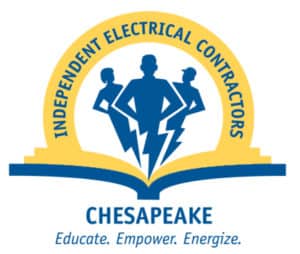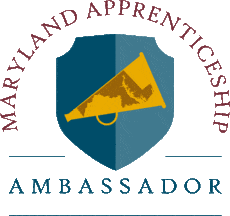
- This event has passed.
Project Management in the Time of Crises, Part 1
July 15, 2020 @ 5:00 pm - 7:00 pm

A weekly, 4-week, 8-hour, live, video class
Instructor: Kirk Alter, Fast Management, Inc. & Purdue University
Wednesdays, July 15 – August 5, 5-7 PM
- Early Registration: $500.00 valid through Thursday, June 25, 2020
- Member Early Registration: $400.00 valid through Thursday, June 25, 2020
- Standard: $550.00 valid through Wednesday, July 15, 2020
- Member Standard: $450.00 valid through Wednesday, July 15, 2020
Good project management has always required paying close attention to the skills of pre-planning, estimating, contract review, scheduling, project execution, customer control…and much more.
At all times, the fundamentals of good project management don’t change. In times of crises – these days of both health crises and economic crises, superior execution is critical to the success of all firms.
In these times “good enough,” isn’t, and many firms are at great risk in the coming months…and perhaps, years.
Contractor, industry expert, and Purdue University professor Kirk Alter and IEC Chesapeake are joining together to provide this timely series of 4-week programs for all-comers.
The class will be offered on Wednesdays from 5:00 pm – 7:00 pm Eastern and will be delivered by WebEx. Materials will be provided via DropBox. You can attend using your computer, phone, or another digital device.
This program is the first part of a series, so don’t miss it!
This is a real-world, case-driven program designed to meet the immediate challenges to your firm resulting from the Covid-19 crisis and the resulting economic crisis.
Topics and issues covered include, but are not limited to:
- Safety: your customer has some project-specific revised safety policies, and your firm has revised safety SOPS, but the customer is not enforcing their own policies, and your craftworkers are grumbling, and resisting complying. What do you do?
- Productivity: you know that enhanced safety precautions are negatively effecting field labor productivity. You understand that they’re necessary, but you’re having a difficult time quantifying the losses, and have no idea on how to convince your customer that these losses should be borne by the project owner. How do you calculate this?
- Estimating – your firm is still pretty much estimating as you always have, and have not built de-rating for losses in productivity into your labor units. You’re afraid that if you do you won’t get the work, yet if you don’t, you won’t make the profits that you should. What changes do you need to make?
- Proposals – throw your old proposal language out the window…you are not protected. Attend this class and learn how to appropriately cover your risk.
- Contracts – you really need to understand how force majeure affects your projects, and revise your approach to contract negotiations and contract language. Identify, quantify, and qualify your contract language appropriately.
- Schedule, delays, acceleration, and completion – More than likely, any projects that have been delayed will be accelerated, with the owner and/or GC encouraging/forcing you to “pick up the slack” to help get the projects completed. Regardless of any contract language that you have signed you have leverage. Learn how to utilize that leverage.
- Notification – because of the additional risks posed by the crises, you must both modify your notification letters to the customer and actually start to utilize them as a tool to successfully negotiate.
- Change Orders – you have even more costs to recover now than ever before. In this program you’ll learn how to revise your standard change order format, proposal, and estimates.
- Marketing & Selling – there will be many contractors, large and small, who will not survive these crises…count on it. In this program you’ll learn how to re-think your customer selection, your market selection, and how other industries are being affected by the crises.
- Strategy – as much as I hate this phrase, we are now in a new normal, and we will not be going back to “the good old days.” Is your firm actively plotting a successful course to emerge from these crises? Or are you taking a “wait-and-see or business-as-usual” approach? If so, you’re already dead, you just don’t know it yet. Learn how to rethink your strategy.
- Your Firm’s New Normal – you have office people working at home, your field leaders have learned how to use MS Teams and Zoom. What are the good things that have resulted from the crises that you can capture to drive more profits to the bottom line? Can you reduce your physical plant costs? Your vehicle costs? Your insurance costs?
- Insurance and Bonding – there are major changes that are occurring in the insurance and bonding industries. Are you paying attention? Do you understand how this will affect your costs, your coverage, and your risks? Come and learn what’s happening, and how to protect yourselves.
- Supply Chain – right now…right now, major manufacturers in our industry are experiencing supply chain issues and plant slowdowns because of Covid19 – at least one major manufacturer in our industry is only currently operating at 50% capacity because 60% of their workforce just went into 14-day quarantine. You’re going to need a materials management, supply chain strategy.
- Differing State, Local, and Federal Regulations – if your firm works in multiple states or areas and you have workers crossing jurisdiction lines you may inadvertently be creating risk for your firm. Some States still have mandatory self-quarantining once you have entered the space. You could end up having to put your crew up in a hotel for 14-days and experiencing associated costs and lost productivity because of it. Are you on top of everything you need to be?
And clearly there are many, many more contemporary topics… As stated, this is an ongoing series and begins with this first 4-week, 8-hour program. As you can imagine, the 14 topics listed will take more than 8-hours to cover in the appropriate depth, so come and join the first of the series, gain some tools, and then come back for more,
This program is designed to be an interactive, discussion-driven, real-world, tool-producing program. No “free-riders” are allowed. Come prepared to talk, to share, and to gain tools designed to help you to survive and thrive in these times of crises. This is not a webinar that you can tune in while you are multi-tasking. Your active participation is necessary.
Who Should Attend?
- Project Managers,
- Estimators
- APMs
- Construction Managers
- Operations Managers
- Owners
- and more.

Kirk Alter
About the Instructor:
Kirk Alter has more than 30 years of experience as a contractor and educator in the electrical and mechanical industries. He has worked his way through the industry as a Foreman, Superintendent, Project Manager, Estimator, Operations Manager, and Vice President of a $120M firm. Since 1995 Kirk has developed University level Undergraduate and Continuing Education Programs for electrical and mechanical contractors. Kirk has provided instruction for IEC chapters nationwide, ABC, and Purdue University.
REGISTER
